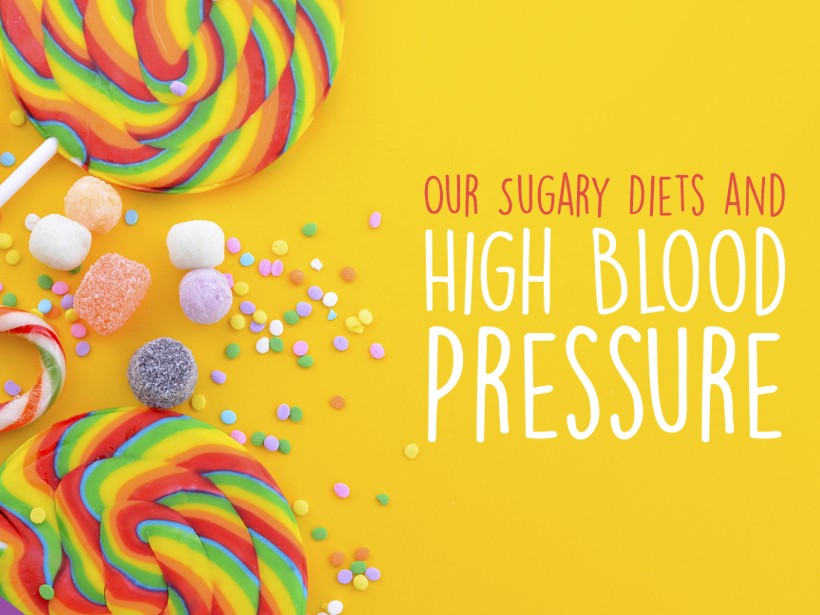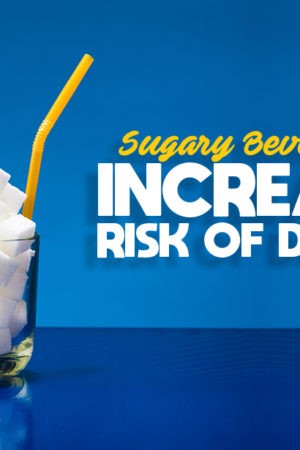About a third of U.S. adults suffer from high blood pressure, or hypertension, which drastically increases the risk of heart disease and stroke.1 Commonly recognized causes of high blood pressure are smoking, drinking too much, eating too much salt, and being obese. Sugar consumption’s link to high blood pressure often goes unrecognized, or is seen as indirect because of sugar’s contribution to obesity in general. While our high-carb diets are largely responsible for the astounding rates of obesity in the U.S., studies have shown that sugar consumption itself increases one’s risk of high blood pressure.
Sugar or Salt?
A 2008 study published in the Journal of American Psychology took a group of healthy young adults and tested their cardiovascular responses to the consumption of soft drinks. The study found that fructose – that is, the kind of sugar ubiquitously added to everyday grocery-store items – created a sustained increase in blood pressure, suggesting that diets high in fructose could increase cardiovascular risk over time.2
For years, however, salt intake has been the primary focus of researchers, health organizations, and policymakers bent on curbing the incidence of high blood pressure. A 2016 literature review examined what it called the “Salt Hypothesis,” against the influence of both sucrose (table sugar) and high-fructose corn syrup. The authors found that there was no conclusive evidence that reducing salt in one’s diet would lower the risk of high blood pressure. On the other hand, they found that there was significant evidence to suggest that both sucrose and fructose are to blame and recommended a change in health policy to match its findings.3
A Fundamental Problem
And these are only examples. Studies have repeatedly shown that, beyond just sugary drinks, the vast amounts of added sugar in our diets may contribute to high blood pressure.4 Even without the direct link between sugar and hypertension, as examined in the 2008 study, sugar’s role in obesity is itself a major contributor to high blood pressure and heart disease. Large amounts of excess glucose that make their way as fat into the bloodstream can, over time, create insulin resistance in the body and then diabetes, yet another cause of heart disease.5
From high blood pressure to obesity to diabetes, there are a variety of risk factors for heart disease. A number of them, however, and these three in particular, can be traced back to sugar.
NUTRITIONAL DISCLAIMER
The content on this website should not be taken as medical advice and you should ALWAYS consult with your doctor before starting any diet or exercise program. We provide nutritional data for our recipes as a courtesy to our readers. We use Total Keto Diet app software to calculate the nutrition and we remove fiber and sugar alcohols, like erythritol, from the total carbohydrate count to get to the net carb count, as they do not affect your blood glucose levels. You should independently calculate nutritional information on your own and not rely on our data. The website or content herein is not intended to cure, prevent, diagnose or treat any disease. This website shall not be liable for adverse reactions or any other outcome resulting from the use of recipes or recommendations on the Website or actions you take as a result. Any action you take is strictly at your own risk.
- What Are Net Carbs? - April 29, 2020
- The Most Comprehensive Keto Alcohol Guide - April 28, 2020
- How to Measure Body Fat Percentage - April 26, 2020































